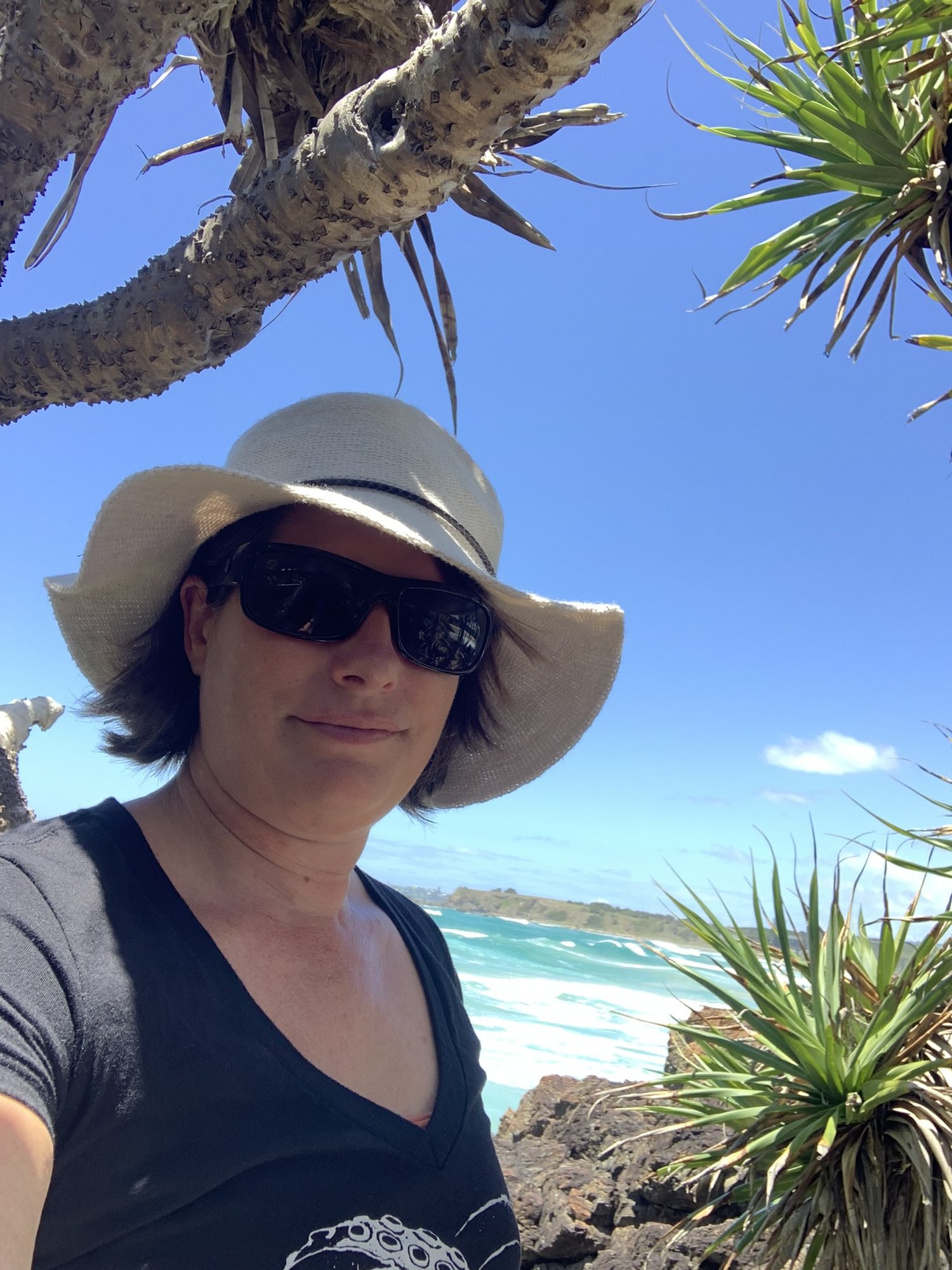Kate Seinor
PhD: Fishery biology and ecology of the marine snail, Turbo militaris
Kate’s current PhD research investigates the biology and ecology of the culturally and commercially harvested marine gastropod Turbo militaris. Her research aims to facilitate the transition of T. militaris from data-deficient to scientifically managed. This work focuses on reproductive periodicity, including development of a non-lethal method for sampling of the reproductive organs, assessment of movement on the rocky shore, and age and growth modelling using mark-recapture field surveys and analysis of growth rings in the calcified opercula. Turbo militaris inhabit a narrow endemic range in Australia; Kate is particularly interested in how these attributes vary over spatially separate locations of differing latitudes. Kate is passionate about the marine ecosystem and contributing to its conservation and sustainability; she aspires to work in fisheries research following her PhD. Kate loves getting out in the field; she is a keen SCUBA diver with Dive Master and Scientific Diver qualifications and a growing interest in underwater photography.
PUBLICATIONS
Nimbs, M., Champion, C., Lobos, S. E., Malcolm, H. A., Miller, A. D., Seinor, K., Smith, S. D. A., Knott, N., Wheeler, D., Colemen, M. A. (2023). Genomic analyses indicate resilience of a commercially and culturally important marine gastropod snail to climate change. PeerJ. 11(3):e16498. doi:10.7717/peerj.16498
Seinor, K., Purcell. S., Malcolm, H., Smith., S. D. A., Benkendorff, K. (2023). Extended and spatially asynchronous reproductive periodicity in a harvested, warm-temperate rocky-reef gastropod (Turbinidae). Fisheries Oceanography. 33(1):e12653. doi:10.1111/fog.12653
Seinor, K., and Benkendorff, B. (2023). Shell drilling and gonad biopsies provide a rapid, non-lethal method for in-situ assessment of reproductive periodicity in Turbinidae. Journal of Molluscan Studies. 89(2). doi:10.1093/mollus/eyad012
